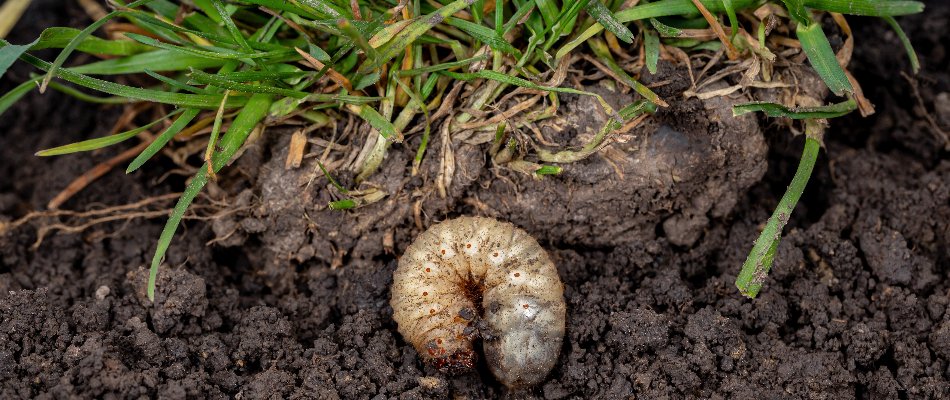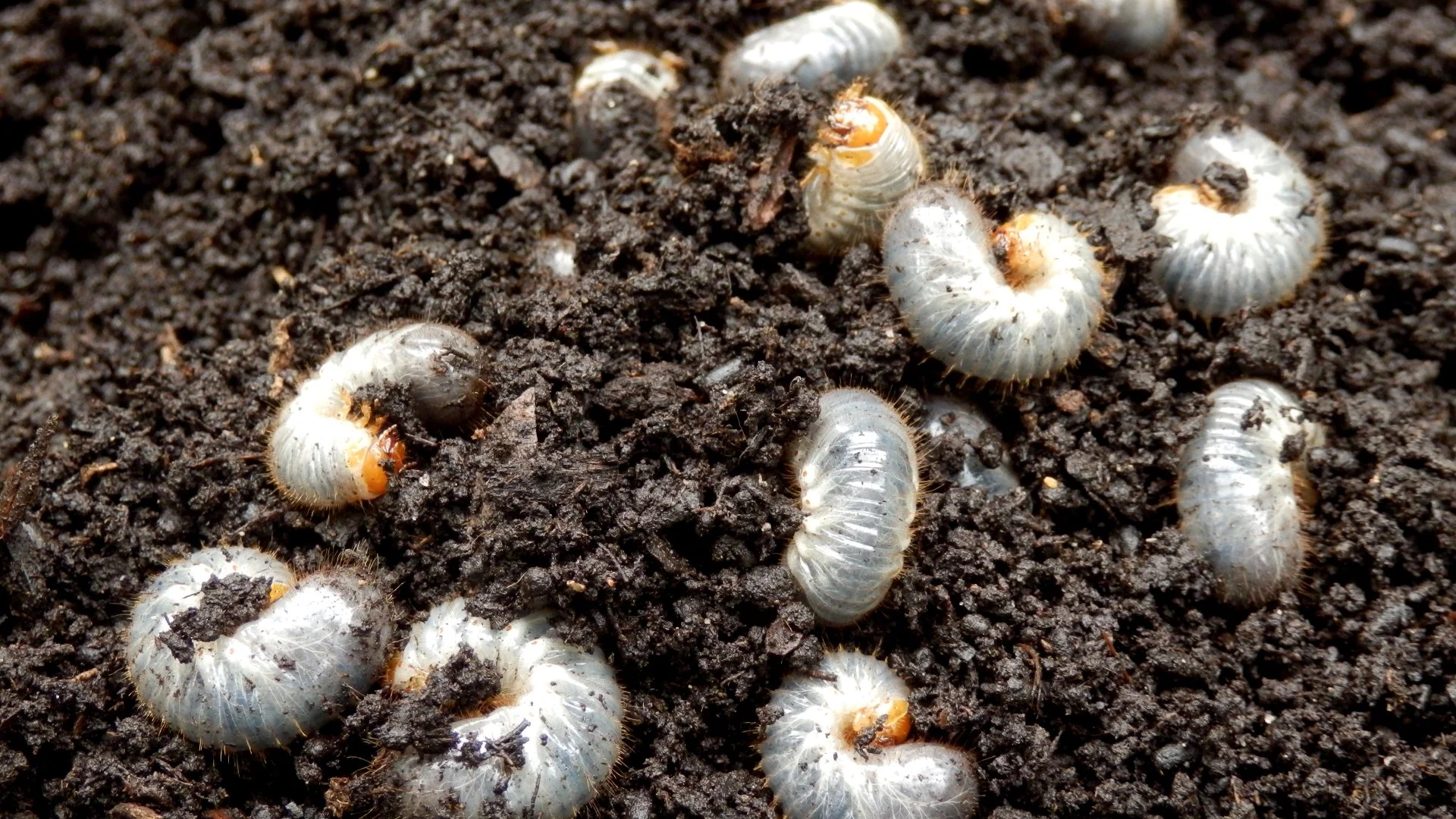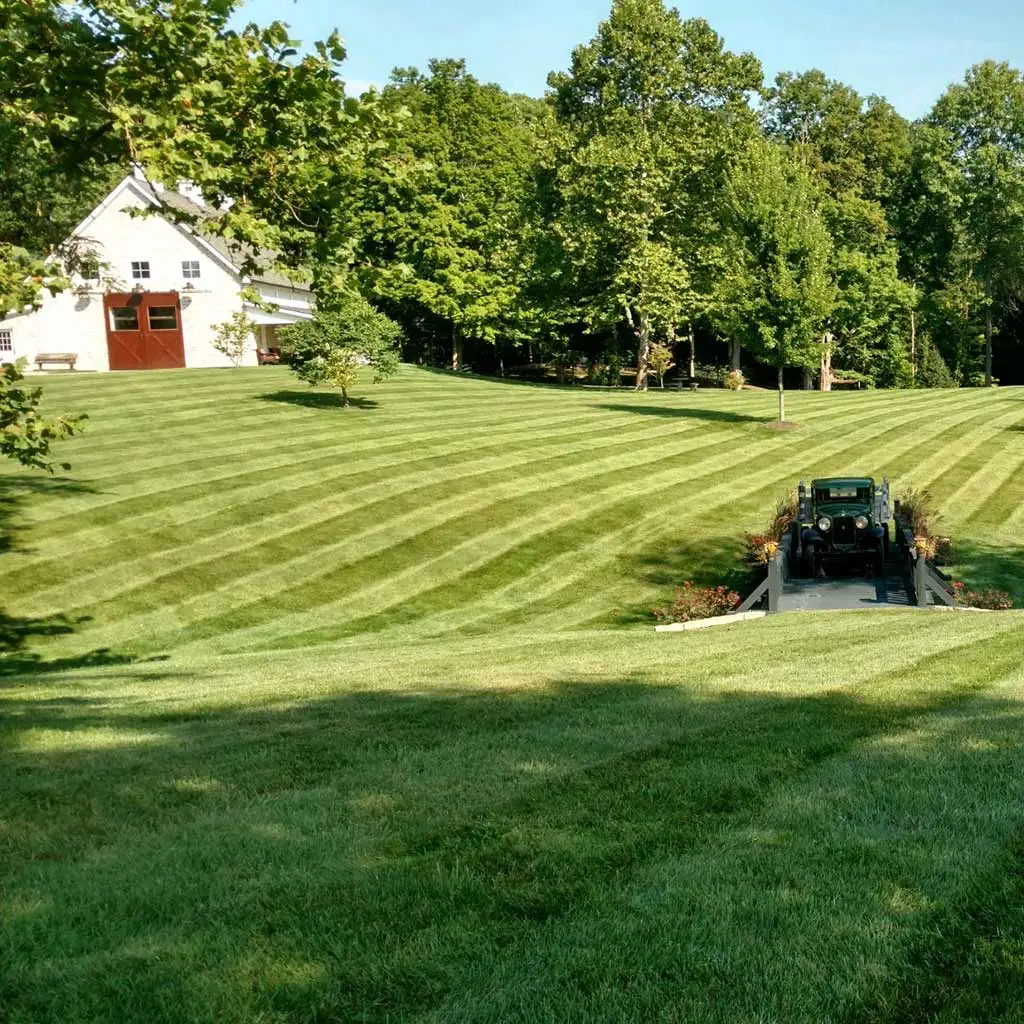Grubs are the larvae of beetles, and they feed on the roots of grass, causing significant damage to lawns. To protect your lawn in Ohio from a grub infestation, it is important to sign up for preventative treatments from professionals. These treatments are designed to target and eliminate grubs before they have a chance to cause damage. Additionally, keeping your lawn healthy through regular fertilization, weed control, and aeration will ensure it is better equipped to resist and withstand grubs. By taking these preventative measures, you can keep your lawn looking healthy, vibrant, and free from the damage caused by grubs.
What are grubs, and what damage do they cause?

Grubs are the larvae of beetles, specifically Japanese beetles, June beetles, and European chafers. These small, white, C-shaped larvae live in the soil and feed on the roots of grass. As they feed, they cause significant damage to lawns, resulting in brown patches and thinning of the turf.
The damage caused by grubs is often mistaken for drought stress or other lawn issues. However, upon closer inspection, you may notice that the grass easily pulls up from the soil, revealing the presence of grubs. They feed on the roots of the grass, causing the affected areas to become weak and susceptible to further damage.
In addition to the direct damage caused by grubs, they also attract other pests, such as skunks, raccoons, and birds, which dig up the lawn in search of the grubs to feed on. This can further disrupt the appearance and health of your lawn.
How can you protect your lawn from a grub infestation?
To protect your lawn from a grub infestation, it is important to take preventative measures. One of the most effective ways to prevent grubs is to sign up for preventative treatments from professionals. Professionals offer treatments that are specifically designed to target and eliminate grubs before they have a chance to cause damage.
Preventative treatments typically involve applying insecticides to the lawn during the early stages of grub development. These treatments are designed to kill the grubs before they have a chance to feed on the roots of the grass. By targeting the grubs early on, you can prevent them from causing damage to your lawn.
Keeping your lawn healthy will ensure it is better equipped to resist and withstand grubs.
In addition to preventative treatments, keeping your lawn healthy through regular fertilization, weed control, and aeration is crucial in preventing and managing grub infestations. A healthy lawn is better equipped to resist and withstand grubs, as well as other pests and diseases.
Fertilization provides essential nutrients to the grass, promoting strong root growth and overall health. Healthy grass with strong roots is better able to withstand grub feeding and recover from any damage that may occur. Additionally, fertilization helps the grass grow thicker and denser, making it more difficult for grubs to access the roots.
Weed control is also important in preventing grub infestations. Weeds compete with grass for nutrients and water, weakening the overall health of the lawn. By controlling weeds, you can ensure that the grass has the resources it needs to grow strong and resist grub feeding.
Aeration is another important practice in maintaining a healthy lawn. Aeration involves creating small holes in the soil to improve air circulation, water penetration, and nutrient absorption. This helps the grass develop deep, healthy roots, making it more resistant to grub feeding and other stressors.
Contact us today to schedule our grub control service!
Grubs are the larvae of beetles that feed on the roots of grass, causing significant damage to lawns. To protect your lawn from a grub infestation, take advantage of our preventative grub control treatment. Our grub control service is offered to residential and commercial property owners, as well as HOAs, in Delaware, OH, and surrounding areas such as Lewis Center and Powell. Contact us today at (740) 318-5296 to schedule our grub control service and protect your lawn from these damaging pests.




Comments (0)
Thanks for your comment!
Thanks for your feedback! Your comments have been successfully submitted! Please note, all comments require admin approval prior to display.
Error submitting comment!
There is a problem with your comment, please see below and try again.